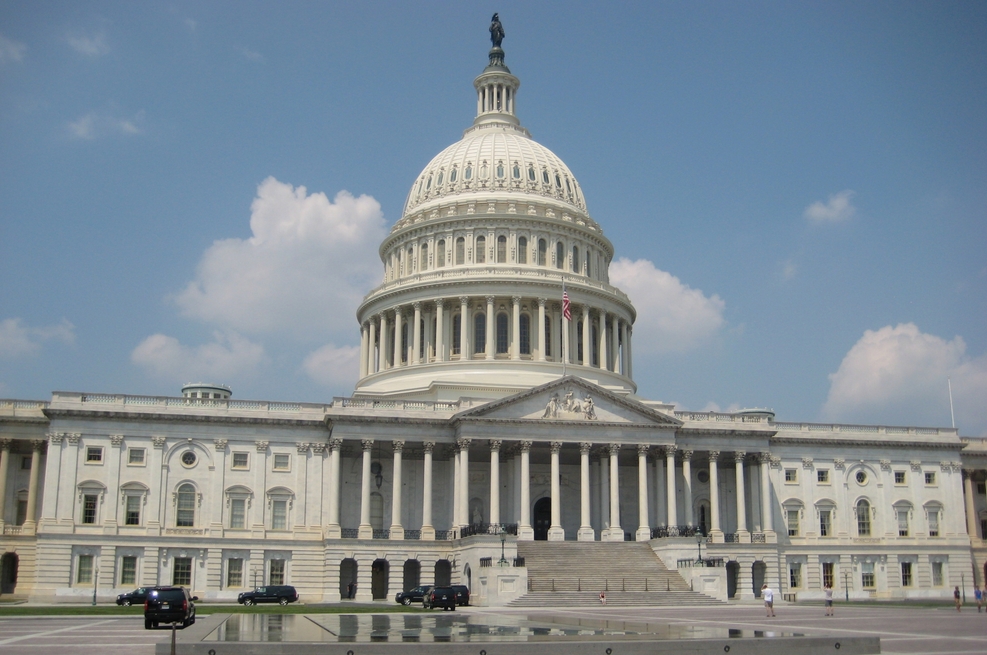U.S. Sen. Mark Begich said today’s Senate approval of a two-year highway bill protects Alaska communities and projects while putting Alaskans to work. The Moving Ahead for Progress in the 21st Century Act (MAP-21) passed the Senate on a vote of 74 to 22.
MAP-21 includes $508 million in formula funding for Alaska in FY2012, an increase of over $170 million from FY09, the final year of the previous surface transportation bill. Coupled with FY 2013 funds, the bill authorizes $1.025 billion for highways, roads, bridges and other infrastructure projects in Alaska.
“I’m glad we were able to build on Alaska’s historically high rate of return on federal transportation funding in this bill,” Begich said. “This is a jobs bill. Through today’s vote we’ve secured funding for projects that will put Alaskans to work and keep our economy moving all around the state.”
Of critical importance to Alaska is funding for the Indian Reservation Roads program. It provides local communities funding for small but important projects such as access to airstrips, improvements to barge landings, and safer local roads. Alaska was slated to receive $34 million next year, a cut of $16 million. MAP-21 now includes $55 million for Alaska tribes next year and $108 million over two years. Each of Alaska’s 229 tribes will receive some of the funding.
“Only two weeks ago we were told many of Alaska’s priorities wouldn’t be included – but as I told the committee chairs managing this bill from both sides of the aisle, I like a challenge,” Begich said. “When we gave them more information about Alaska’s unique needs and transportation challenges, they came around to our way of thinking.”
Begich’s work was praised by Alaska Federation of Natives Senior Vice President Nelson Angapak Sr.
“On behalf of the Alaska Federation of Natives, we thank Senator Begich and Alaska’s Congressional Delegation for their efforts of amending MAP-21 in such a manner that this bill will be able to benefit the federally-recognized tribes in Alaska far better than what was in the original bill. It is great to see bipartisan action of our delegation,” Angapak said.
Begich also pointed to language in the bill supporting the Denali Commission, created in 1998 to provide utilities, infrastructure, and economic support throughout Alaska. There has been uncertainty in Congress about the Denali Commission’s future, but due largely to Begich’s advocacy, MAP-21 expands the commission’s ability to accept non-federal grant funds, clearing the way for the State of Alaska to direct funding to commission projects.
“Even though this Congress has banned earmarks, we’ve scored two big wins for Alaska,” Begich said. “We increased overall formula transportation dollars and also removed red tape prohibiting the State of Alaska from funding critical Denali Commission projects. Communities throughout Alaska – cities and villages alike – can benefit from MAP-21.”
After today’s vote, the Senate now awaits action by the U.S. House. If there are differences between the two versions a conference committee will be appointed.
Here is a summary of key provisions in the bill:
Denali Commission
Besides his language giving the State of Alaska authority to direct funding to the commission, Begich also added a provision allowing federal agencies to transfer already approved funds to commission projects. The commission’s transportation program is vital for rural Alaska. To date it has funded 169 projects, has completed 49 road projects and 37 waterfront projects and has an additional 85 projects currently active in either planning, design or construction. The commission’s program is leveraged heavily by other federal and non-federal sources.
Indian Reservation Roads
Early drafts of MAP-21 proposed to replace the current needs-based IRR formula with a new tribal transportation program that would redistribute the existing pool of IRR funds to higher population areas in the Lower 48. Under this proposal Alaska tribes would have seen their funding reduced from the current level of $49 million a year to about $34 million annually. Begich opposed this change and worked with the bill sponsors to increase funding to Alaska tribes to $55 million and $53 million annually for the two-year life of the bill.
Tourism Improvements
Another Begich amendment will make sure the tourism industry is engaged in the transportation planning process. Tourism is facilitated by our nation’s transportation infrastructure. A Begich amendment included in MAP-21 requires states and local governments to consider the impact on travel and tourism in the scope of the transportation planning process and provides for consultation with appropriate tourism officials.
“Our nation’s transportation infrastructure is the most important asset of the travel industry,” said Roger Dow, President and CEO of the U.S. Travel Association. “Senator Begich’s amendment will strengthen the role of local travel leaders in transportation planning and ensure that long-term transportation plans include strategies to increase travel and tourism, and support economic growth.”
COMPLETE Streets Act
MAP-21 contains language Begich inserted as an amendment in the Senate Commerce, Science, and Transportation Committee to make road projects safer for cars, bikes, and pedestrians by designing and building Complete Streets. This amendment encourages states and local governments to design and build roads that are safe for both motorized and non-motorized users.
“The Bicycle Commuters of Anchorage fully supports MAP-21 and the Complete Streets language included by Senator Begich,” said Kristi Wood, Board Member of the Bicycle Commuters of Anchorage. “It is more crucial now than ever to support bicycle and pedestrian infrastructure. Complete Streets will bring much needed safety improvements to our roads.”
Authorization to Fund State Ferries
A Sen. Patty Murray (D-WA) amendment, co-sponsored by Begich, authorizes funding for the construction of ferries and ferry terminal facilities. The amendment authorizes up to $67 million annually for ferry funding. The amendment allocates funding to states through a formula based on passengers, vehicles carried and total route miles.
“From Ketchikan to Dutch Harbor, I know how important the Alaska Marine Highway System is to keeping our geographically isolated communities connected,” Begich said.








